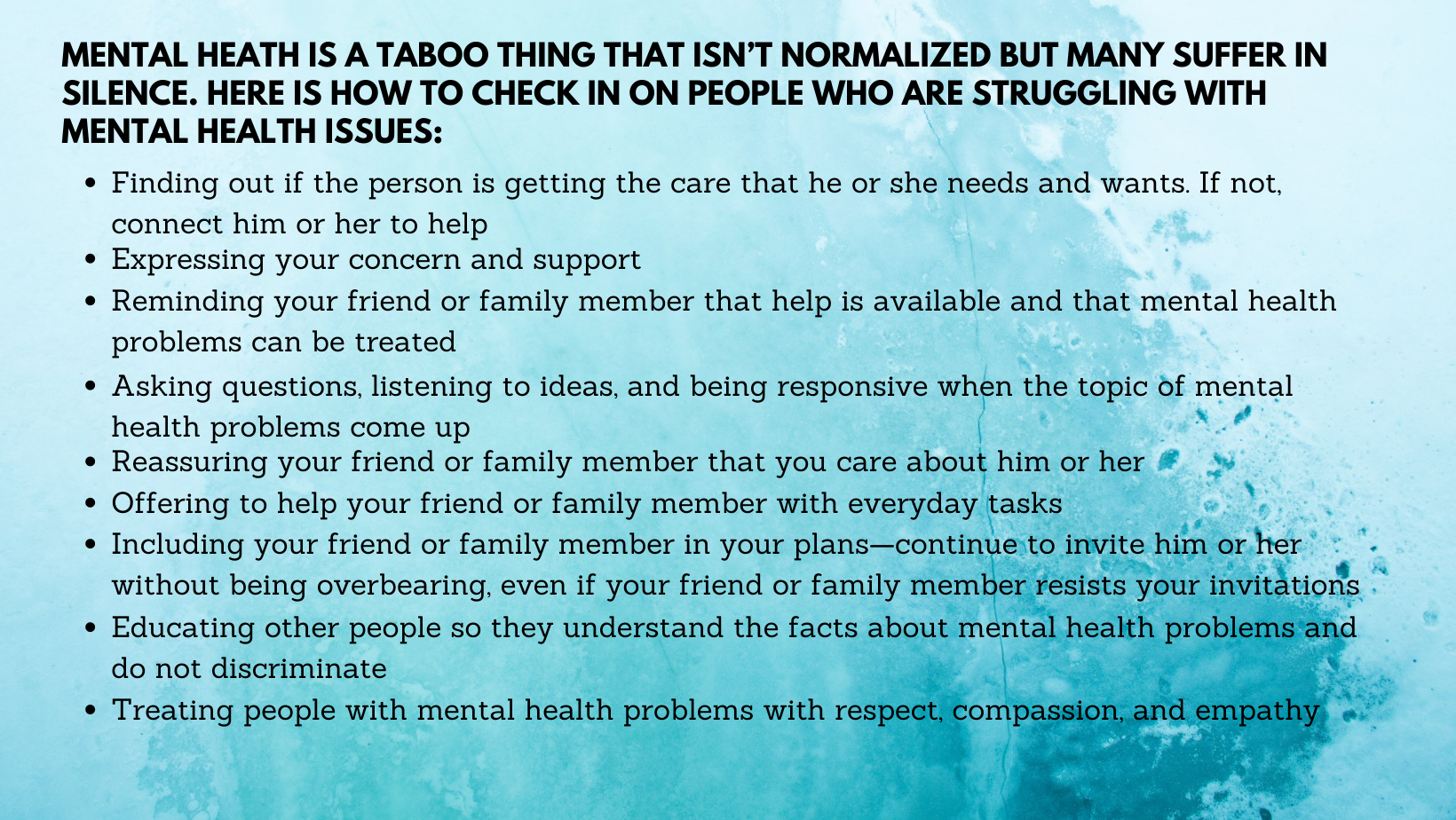The range of mental health issues that is evident among foster children is vast and varied, and includes post-traumatic stress disorder (PTSD), panic and anxiety disorders, major depression and drug/alcohol abuse.
Within 30 days a child entering foster care completes a psychological evaluation and more often than not they are diagnosed with the above mental health needs. Mental health doesn’t just magically disappear, it requires stability, love, prayer, therapy and sometimes medication.

As we entered the 2020 pandemic, mental health issues were at an all time high as people found themselves, isolated, scared and lonely. If you personally are suffering from mental health, try these tips to keep your balance, or re-balance yourself.
Surround yourself with good people:
People with strong family or social connections are generally healthier than those who lack a support network. Make plans with supportive family members and friends. Seek out activities where you can meet new people, such as church, an activity club, or support group.
Give yourself:
Volunteer your time and energy to help someone else. You’ll feel good about doing something tangible to help someone in need — and it’s a great way to meet new people.
Set realistic goals:
Decide what you want to achieve academically, professionally and personally, and write down the steps you need to realize your goals. Aim high but be realistic and don’t over-schedule. You’ll enjoy a tremendous sense of accomplishment and self-worth as you progress toward your goal.
Break up the Monotony:
Although our routines make us more efficient and enhance our feelings of security and safety, a little change of pace can perk up a tedious schedule. Alter your jogging route, plan a road-trip, take a walk in a different park, hang some new pictures or try a new restaurant.
Get help when you need it:
Seeking help is a sign of strength — not a weakness. And it is important to remember that treatment is effective. People who get appropriate care can recover from mental illness and addiction and lead full, rewarding lives.
Foster kids need assistance in managing all of the above tasks to be mentally healthy. For example, a young boy, who entered foster care due to an abusive home, lost at a board game that he was playing with the foster family. He chose to throw the pieces, stomp and yell because he wasn’t able to manage his feelings in the correct way. With guidance, stability and patience from the foster parents, he has been able to change his reaction to losing a game to be more like calmly standing, walking to a quiet area of the home and taking some deep breaths.
TBHC is committed to providing this assistance for every child who enters our care. We make sure our foster parents are trained to notice the signs of mental illness, how to react and how to help the foster kids stay balanced. TBHC case managers continue to educate themselves on new techniques on managing mental health to pass on the foster families and kids.
Written by Sarah V
*Adapted from the National Mental Health Association/National Council for Community Behavioral Healthcare




